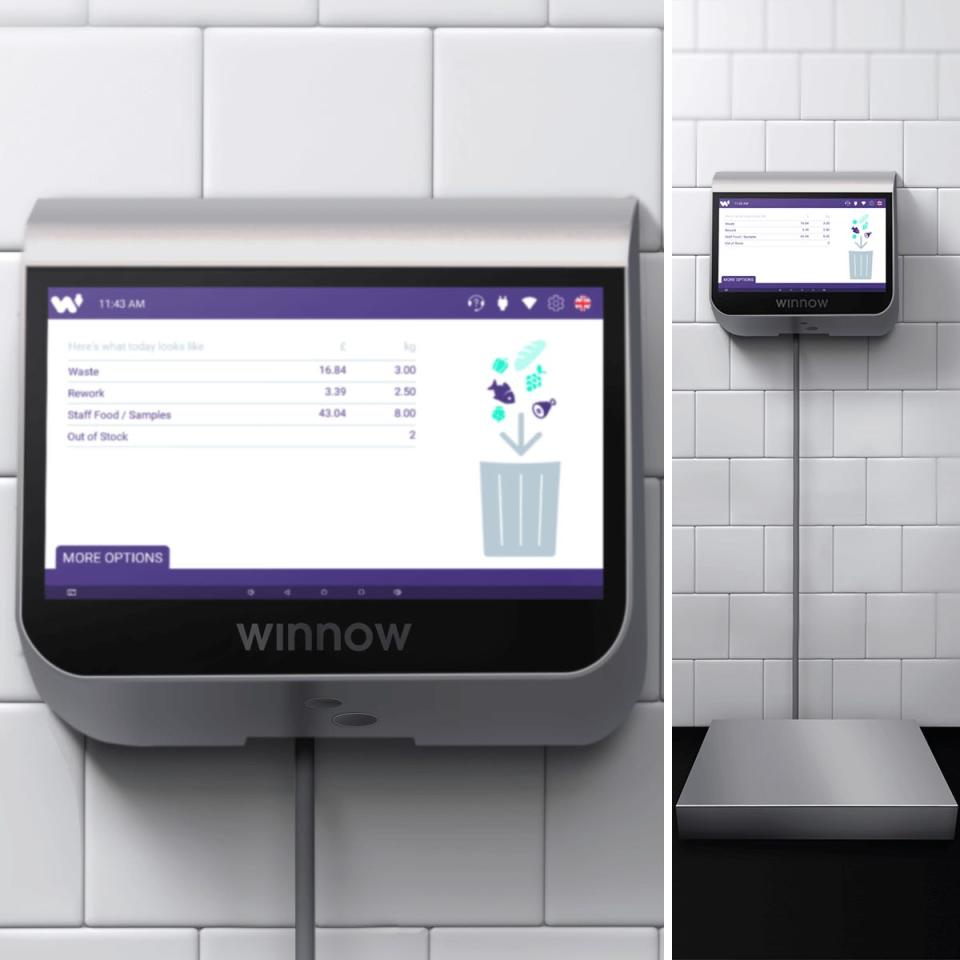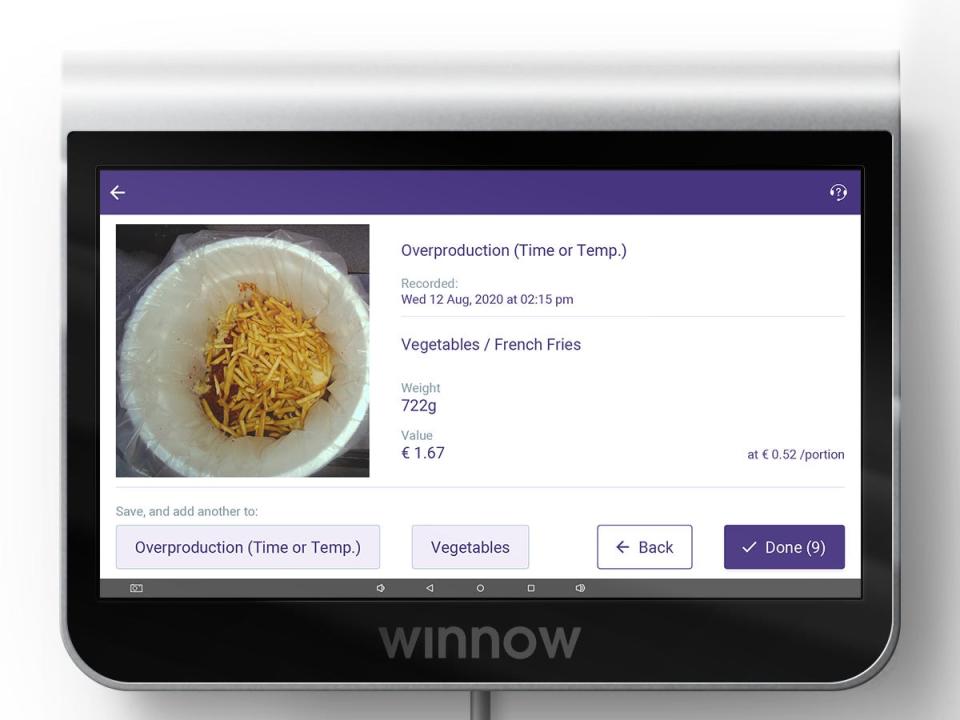Hotels and offices are using an AI tool that scans what they throw in the trash to reduce their food waste and cut costs
Some kitchens are turning to AI to monitor how much food they're wasting.
AI company Winnow tracks food waste going into the trash using a motion-sensor camera and scales.
Hilton has been using Winnow to reduce waste at its breakfast buffets by serving smaller portions of croissants, fruit, and salmon.
Hotels are reducing how much food they waste at their breakfast buffets by installing AI-powered cameras above their kitchen trash cans.
British company Winnow's hardware involves a scale that kitchens place a trash can on, as well as a screen with a motion-sensor camera. Its AI scans the items after they're placed in the trash — it can identify whether that was a bowl of carrot peelings, excess guacamole, or uneaten mashed potato — and the scale then records how much of that item was thrown away.
Chefs and restaurant managers can see this data in real time.

The system "makes it really easy for us to gather accurate data on what's being wasted in these kitchens," Winnow cofounder Marc Zornes said, noting that the difficulty of collecting accurate recordings was the "biggest problem" many companies faced in tackling their food waste.
"And it's important that you make this process easy because kitchens are very busy places," he said.
Winnow then uses this data to advise chefs on buying the right amount of ingredients and how to prepare them to minimize waste.
Zornes said that Winnow's accuracy at identifying foods "can vary from site to site."
"If it knows what it is outright, it identifies the product," Zornes said. "If it doesn't know what it is and it thinks it's a couple of options, it can present that to the user, and they can help the system get better over time."

According to the United Nations Environmental Program, 19% of food available to consumers globally — or more than 1.1 billion tons — was wasted in 2022. Of this, nearly 30% was wasted in the food service sector. Food loss in the supply chain and food waste generate almost five times the total greenhouse gas emissions from the aviation sector, per the UNEP.
Reducing food waste can boost a company's eco credentials — and cut costs.
Winnow's clients include hotels, cruise lines, universities, and food service companies that provide professional catering services.
And it's not just back-of-house waste that they're tracking.
In the Middle East, Hilton has been using Winnow to look at which items from its breakfast buffets are being wasted the most, Sebastian Nohse, Hilton EMEA's senior director of culinary, told BI.
Breakfast buffets create "a really big chunk of waste that we in the hotel industry in general didn't really have clear insights about," he said.
He said Hilton used data from Winnow to experiment with smaller croissants, fruit, and smoked salmon served in smaller portions for its breakfast buffets.
"If we can remove choice, that will drive impact," Nohse said. "If we can make the choice for the guests by providing a smaller croissant or a smaller doughnut or cutting the fruit in a different way, we can create positive impact without letting the guests make the choice but by creating impact by default."
It's not just big portion sizes that are contributing to diners leaving food on their plates. Using Winnow, chefs can see which dishes aren't going down well with diners, Paul Fairhead, CEO of Guckenheimer, the food services arm of ISS which provides commercial catering, told BI. They can then, for example, consider whether the flavors of the dish weren't right, or check the pictures recorded by Winnow to see whether it just looked burned that day.
Winnow declined to share specifics about how much its services cost.
Hilton said that in a "Green Breakfast" pilot that involved making decisions based on Winnow data as well as introducing sustainable behavior "nudges," it cut food waste at 13 of its hotels in the United Arab Emirates over a four-month period in 2023 by 76% for pre-consumer, or kitchen, waste and by 55% for post-consumer waste.
The most wasted items included bread and pastry, white eggs, porridge, congee, sambar, shakshuka and baked beans, Hilton said.
Read the original article on Business Insider

